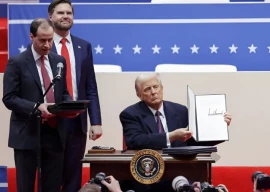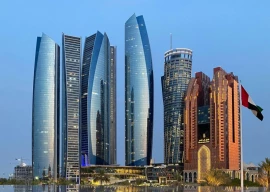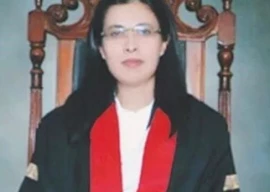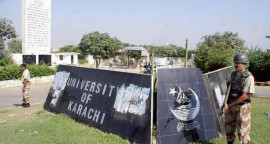1737286368-0/trump-(1)1737286368-0.jpg)
U.S. President Donald Trump signed an executive order Monday to designate drug cartels as foreign terrorist organizations, a move aimed at addressing violence and drug trafficking in the Western Hemisphere.
The order cited threats from Mexican cartels and criminal groups like Venezuela’s Tren de Aragua and El Salvador’s MS-13, which it described as endangering U.S. security and regional stability. While specific organizations were not named, Trump directed Cabinet secretaries to recommend groups for designation within 14 days.
This measure is part of a broader set of policies, including declaring a southern border emergency, planning 25% tariffs on Mexico and Canada, and ending the CBP One app for asylum seekers. By aligning these policies, the administration aims to present a tough stance on immigration and border security.
While the order seeks to curb cartel influence, experts are divided on its potential impact. Vanda Felbab-Brown of the Brookings Institution warned that the designation could prevent many undocumented migrants from seeking asylum, as cartels often control migrant smuggling routes. "Trump can essentially block the majority of migrants from obtaining asylum," she explained.
Mike Vigil, a former DEA official, described the move as "political theater," noting that many counter-narcotics tools already overlap with anti-terrorism powers. The designation, he added, could enable asset seizures, sanctions, and travel bans but would not allow U.S. military intervention in Mexico due to its sovereignty.
The policy comes amid heightened cartel violence in Mexico, where internal conflicts, such as the power struggle within the Sinaloa cartel, have led to escalating bloodshed. Gunmen continue to spread terror, leaving mutilated bodies in public and kidnapping victims from hospitals.
As the U.S. intensifies its focus on cartels, the long-term effects on migration, trade, and regional stability remain uncertain. The response from Mexico and other Latin American countries will be critical in shaping the outcomes of this controversial policy.




1737462113-0/justin-(3)1737462113-0-165x106.webp)

1737458527-0/sidra--(70)1737458527-0-270x192.webp)
1737450079-0/sidra--(63)1737450079-0-270x192.webp)
1737447973-0/sidra--(62)1737447973-0-270x192.webp)
1737444447-0/sidra--(60)1737444447-0-270x192.webp)
1737286368-0/trump-(1)1737286368-0-270x192.webp)
1737440100-0/melania-(1)1737440100-0-270x192.webp)

1737438801-0/kai-(2)1737438801-0-270x192.webp)













COMMENTS
Comments are moderated and generally will be posted if they are on-topic and not abusive.
For more information, please see our Comments FAQ